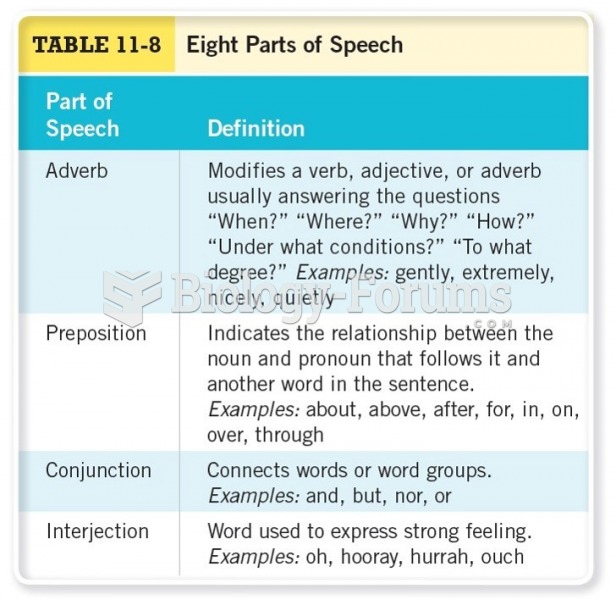Answer to Question 1
One phenomenon in speech perception that led to the notion of specialization was the finding of categorical perceptiondiscontin uous categories of speech sounds. That is, although the speech sounds we actually hear are made up of a continuum of variation in sound waves, we experience speech sounds categorically. This phenomenon can be seen in the perception of the consonantvowel combinations ba, da, and ga. A speech signal would look different for each of these syllables. Some patterns in the speech signal lead to the perception of ba. Others lead to the perception of da. And still others lead to the perception of ga. Additionally, the sound patterns for each syllable may differ as a result of other factors like pitch. The ba that you said yesterday differs in pitch from the ba you say today. But it is not perceived as different: It is perceived as belonging to the same category as the ba you said a few days ago or will say tomorrow. However, two nonspeech sounds, such as two tones, would be perceived as different. In this case, continuous differences in pitch (how high or low the tone is) are heard as distinct tones.
Answer to Question 2
One approach to speech perception suggests that when we perceive speech, we use the same processes as when we perceive other sounds like the crowing of a rooster. These kinds of theories emphasize either template-matching or feature-detection processes. They suggest that there are different stages of neural processing: In one stage, speech sounds are analyzed into their components. In another stage, these components are analyzed for patterns and matched to a prototype or template. However, feature detection or template-matching is not enough; decision-making processes are required as well. This is because the speech we perceive may differ from the speech sounds that actually reach our ears: Cognitive and contextual factors influence our perception of the sensed signal.







